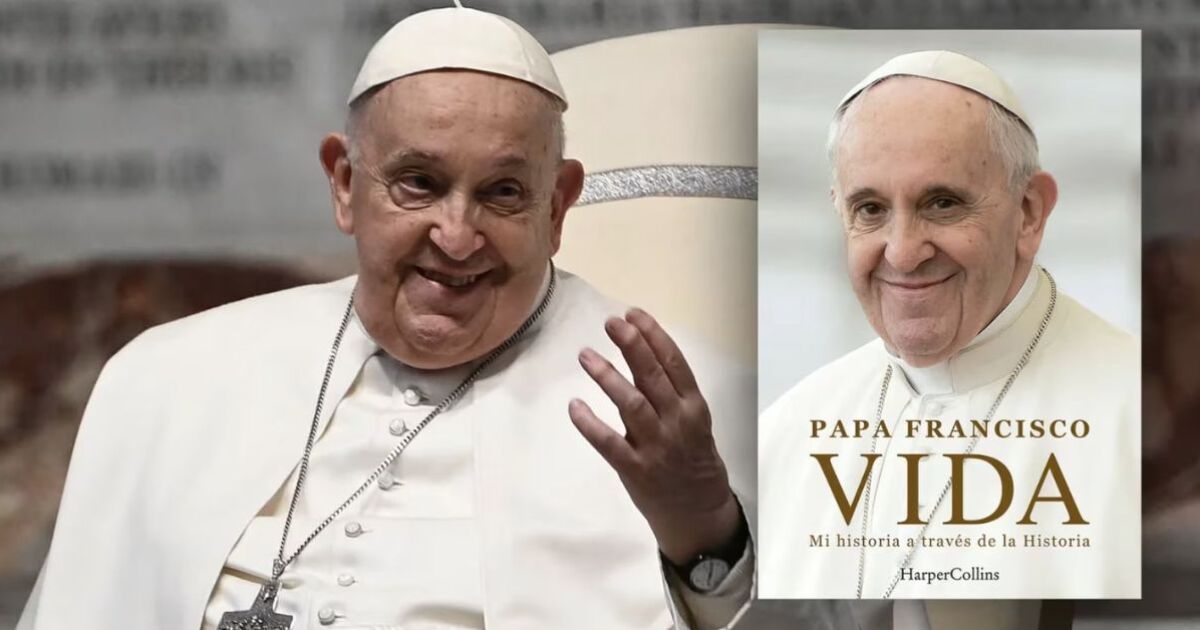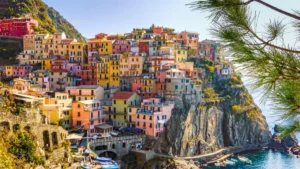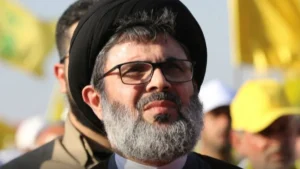
Pope Francis digs into the intimacy of his memories “throughout history” in his autobiographyfrom the Second World War to his election as pontiff in 2013 or the covid-19 pandemic, passing through the military dictatorship in Argentina, which was “something diabolical.”
“Maybe I didn’t do enough for her,” he says of Esther, his boss at the laboratory where he worked when he was young, whom the military regime tortured and murdered by throwing her from a plane.something Pope Francis still laments about in Life, my story through history (Harper Collins, 2024), which is published this Wednesday in Spain.
In these memoirs, the pope bares his heart and seeks “target the youngest, so that the mistakes of the past are not made“Fabio Marchese, co-author of the book that began to be written in April 2023 and that the Italian Vaticanist has completed with meetings, phone calls and emails with the pontiff, explains to EFE.
From World War II to COVID-19
Divided into fourteen chapters, Pope Francis makes a time journey in the book that starts from the outbreak of World War II, when little Jorge Mario Bergoglio was 3 years old, and covers important events such as the Holocaust, the Cold War, the arrival from man to the Moon or the fall of the Berlin Wall.
His role as superior of the Jesuits during the military coup d’état in Argentina on March 24, 1976 is one of the events that he remembers with “most emotion,” according to Marchese, a period that led to accusations of alleged collusion with the regime. for which he even had to testify in a trial in 2010.
“In the end they informed me that there was nothing against me and they declared me innocent“explains Francisco, who also assures: “Later, some people confided in me that the Argentine Government of that time had tried by all means to put the noose around my neck, but that in the end they found no evidence because I was clean.”
Francisco even celebrated mass before Videla thanks to “a ruse” to intercede for the release of two Jesuits kidnapped and tortured for months: “The dictatorship is something diabolical, I saw it with my own eyes… It was a generational genocide!”
Bergoglio also remembers what the COVID-19 pandemic meant in his life for not being able to console the sick: “How I would have liked to visit the nursing homes and have heard the stories of the elderly who were living in isolation for months!”
Own names
The pope highlights many personal names that marked his life, starting with his grandmother Rosa, an Italian immigrant from Piedmont (north) who the pontiff establishes as a “fundamental figure” for his “development and education.”
And also that of Esther, his boss in the laboratory where he worked when he was young, a “true communist, atheist, but respectful”, whom the regime tortured and murdered by jumping from a plane.
“With other kidnapped boys I managed to do something, I was useful to them. However, with Esther… I didn’t achieve anything, despite insisting so much to someone who surely could have intervened. Maybe I didn’t do enough for her.”
In the book, the pontiff also leaves room to show his opinion on other personalities such as John Paul II, Benedict XVI, the Argentine president Javier Milei, the Hungarian Viktor Orban or even Hitler, a racist “elevated to the nth degree.”
The most human Francisco
The pontiff shows his most human side, far from theological reflections and with references to topics outside of religion, such as football or his personal relationships during his youth with his girlfriend or his friends.
“The Pope’s happiest memory is the moment when Argentina won the World Cup in ’86,” says Marchese and, although he did not see it on television, he was able to ask Diego Maradona years later in the Vatican what was “the incriminated hand” in the famous goal of the Argentine star in the final baptized as “the hand of God”.
The pontiff does not hide his feelings. He speaks openly about the tears produced by the September 11 attacks on the World Trade Center in New York or the “dark” period during his exile in the 90s in a convent in the Argentine province of Córdoba.
But he also remembers with happiness his childhood with his family, the matches of San Lorenzo de Almagro, his team; the joy of his priestly ordination and the surprise that he experienced in the conclave of his election, on March 13, 2013.
At 87 years old, Francis faces the final stretch of his pontificate with his sights set on “abandoning the rigidity of the Church” to open it even more to historically repudiated groups and without considering a resignation from the Petrine see (only due to “a serious physical impediment”) with which there has been so much speculation in the last year.
Source: https://www.noticiascaracol.com/mundo/papa-francisco-escarbo-a-traves-de-la-historia-en-su-autobiografia-cb20


